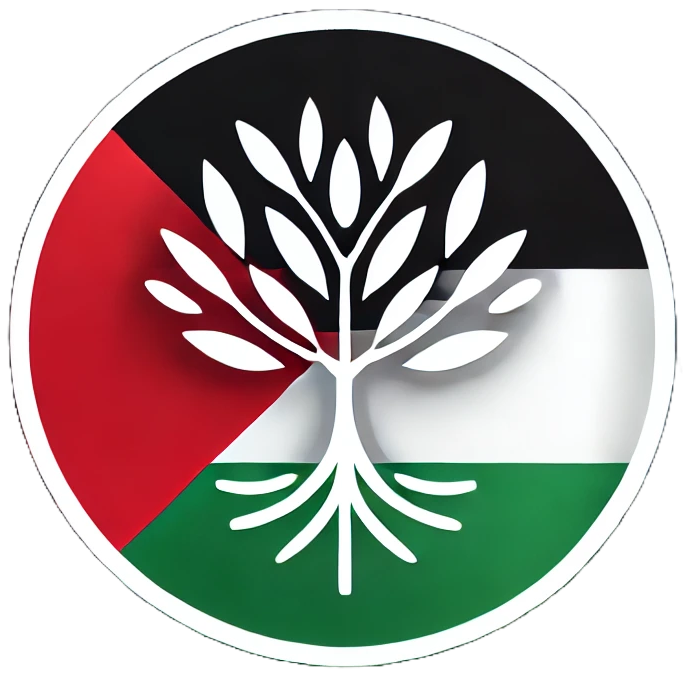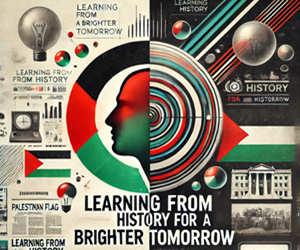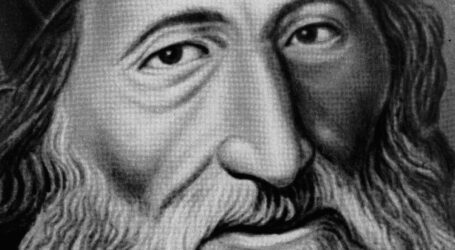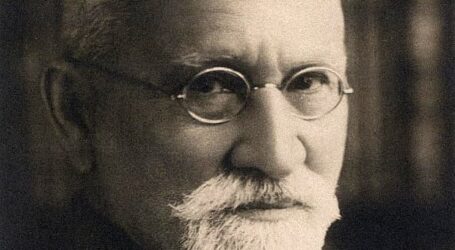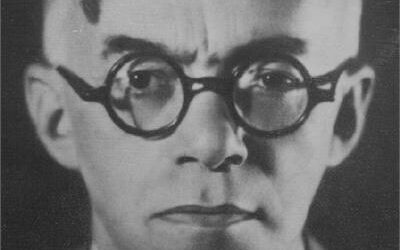A.D. Gordon: Biography
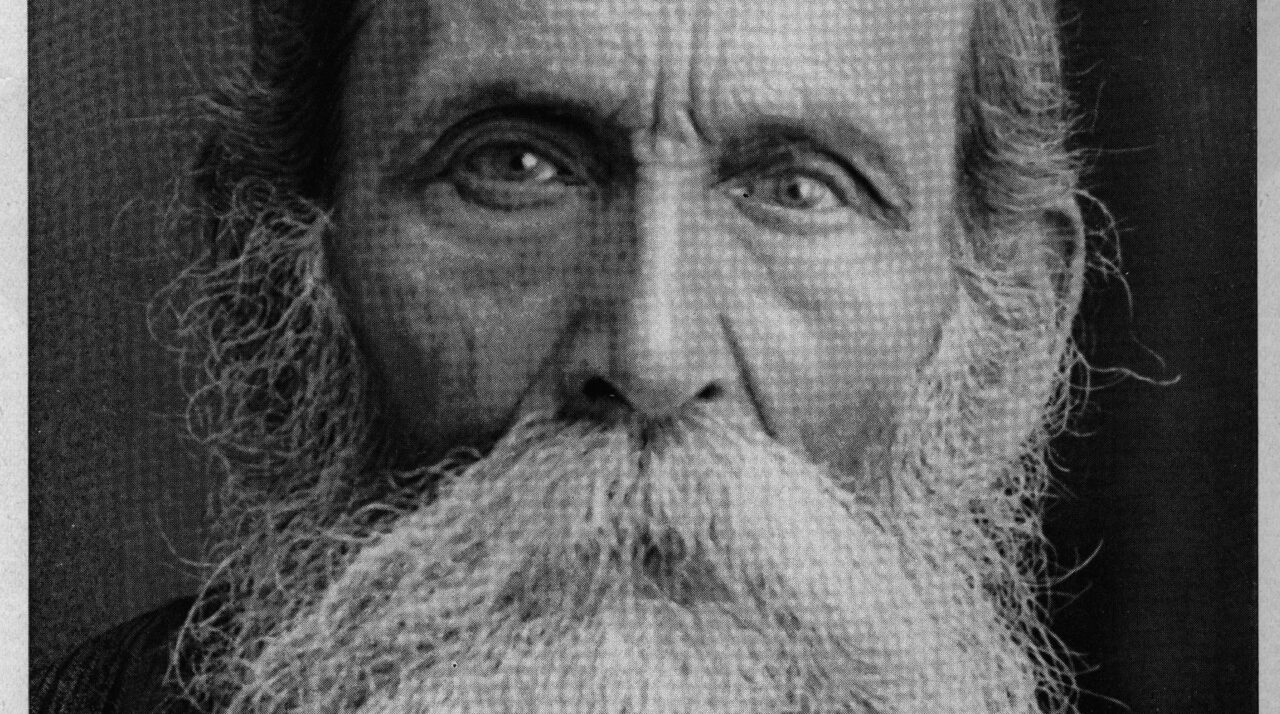
Born: June 9, 1856, Troyanov;
Died: February 22, 1922, Degania
A.D. Gordon or Aaron David Gordon was a writer, philosopher, and Zionist. He was born on June 9, 1856 in Troyanov. He worked for over 20 years as a official for the estate of a wealthy Russian Jew, Baron Günzburg.1 When he was 47 years old, he decided to leave his former life behind and immigrate to Ottoman Palestine. When he arrived, he got a job working in Petah Tikva, a settlement near Tel Aviv. This settlement in particular relied on Arab labor for cultivating the vineyards, which Gordon disliked as it didn’t fit his model for an ideal community.
A.D. Gordon set out to create his own ideal community, and so he and a few others co-founded Hapoel Hatzair. In 1906, this organization went to found a settlement in Degania near the Sea of Galilee. This organization was unique in calling for the revival of the Hebrew language, Gordon and his other co-founders came from homes where the Hebrew language was preserved which contrasted with other Zionists who spoke only the languages of the regions they grew up in. This organization was socialist in nature along with other Zionist organizations, however for Gordon’s Hapoel Hatzair it was anti-Marxist in platform. For Gordon, Zionism was “the dominant force and influence that pervades everything they did. For the Marxist-socialists, Zionist goals were subordinate to the dictates of socialist revolution. Where the Marxists were dogmatic and doctrinaire, seeking to force Zionism to conform to their preconceived notions of socialism, Hapoel Hatzair was founded with the idea of creating a truly Zionist way of life, adopting socialist principles to their unique needs and institutions.”2
A.D. Gordon believed that Jews needed to regain their dignity and purpose by returning to nature through hard physical labor. He believed that for a nation “to be ‘itself’ must be alive, must be new and vigorous as new life is. This vigour is found by aligning one’s own self with nature; a new nation is like a new man, healthy and idealistic. This individual is an integral part of the nation which is in turn an integral part of nature.”3 A.D. Gordon searched for a new type of life, different from the typical Jewish experience in the diaspora. He found this new type of life in agricultural labor. Gordon writes that, “the concept of work must now be our central wish; upon labour we must base all our work, that is the national task. Only if we will make work our ideal, will we discover the ideal of labour. When we unite with nature, which was torn away from us, only then will we be cured of our illness [lack of labour]. Work is a great human ideal, the ideal of the future, the ideal which will cure us of our historical parasitism [he is referring to the small Jewish profiteer and peddler].”4
He believed that the Jewish people had become separated from what he viewed as the only productive work, agricultural labor, because of historical circumstances. One of these historical circumstances is that in Europe, Jews were banned from many occupations and pushed into work such as money-lending. This in part because Catholics regarded lending money for interest as a sin and thus Catholics were forbidden to engage in this profession. Thus, Jews were pushed into this profession as it was among the few available to them. This caused them to be separated from agricultural labor and from nature itself. For Gordon, “agricultural work was needed not only as a link with nature but as a creative power towards a national culture.”5
What A.D. Gordon stood for was “a concept of national regeneration through agricultural labour. Zionists hoped to achieve the psychological transformation of Diaspora Jews into Israel pioneers. This aspect of Gordon’s formulations played a key role in the development of the Kibbutz movement in Israel.”6
A.D. Gordon would die in the settlement of Degania, which he co-founded on February 22, 1922.
- Britannica, T. Editors of Encyclopaedia. “Aaron David Gordon.” Encyclopedia Britannica, June 5, 2024. https://www.britannica.com/biography/Aaron-David-Gordon. ↩︎
- Perlmutter, Amos. “A. D. Gordon: A Transcendental Zionist.” Middle Eastern Studies 7, no. 1 (1971): 81–87. http://www.jstor.org/stable/4282359. ↩︎
- Ibid. ↩︎
- Ibid. ↩︎
- Ibid. ↩︎
- Ibid. ↩︎
